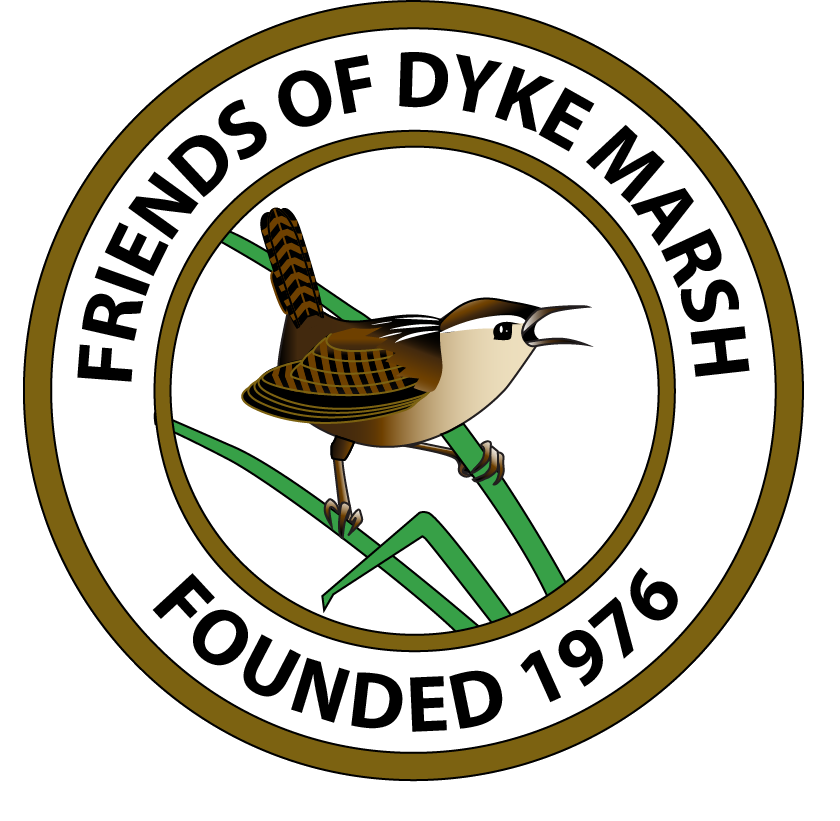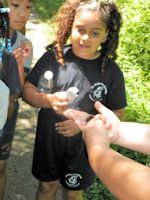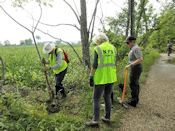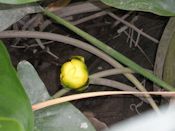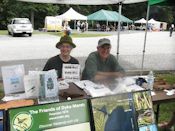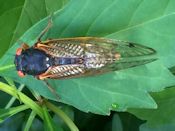Rising third graders from St. Philip the Apostle Catholic School, Camp Springs, Maryland, were intrigued by the black “patent leather” beetle or horned passalus (Odontotaenius disjunctus), during their June 1, 2017, visit. NPS Ranger Mireya Pasa urged the youngsters to touch the beetle and pointed out the insect’s distinctive mandibles.
On May 31, 2017, eight enthusiastic FODMers planted another 30 native shrubs and trees along the Haul Road trail east of the “dogleg” turn along the trail, led by NPS staffers Melissa Westbrook and Colin Davis. This planting was in addition to the 40 plants put in on April 25, 2017.
On May 20, 2017, a class led by Joel Cohen, Audubon Naturalist Society, visited the Dyke Marsh Wildlife Preserve to study biodiversity. A common wetland plant in the marsh, spatterdock (Nuphar polyspala), was in bloom, sporting its bright yellow, golf-ball-like flower.
On May 20, 2017, FODM exhibited at the 20th annual Mason Neck Eagle Festival. Glenda Booth and Marc Ribaudo, pictured here, staffed the table in the afternoon; Ned Stone and Trudi Hahn, in the morning. A steady stream of youngsters made colorful birds at the FODM table and a “foxy” ranger visited.
On May 14, 2017, FODMers saw periodic cicadas, genus Magicicada, emerging in Dyke Marsh, moreso in west Dyke Marsh, but definitely on both sides of the George Washington Memorial Parkway.
Observers may see the insects’ shed nymphal skins at the base of trees. Unlike the cicadas that appear annually in Dyke Marsh (swamp, Robinson’s, Linne’s, scissor-grinder and others), the periodic cicadas appear much less frequently.
